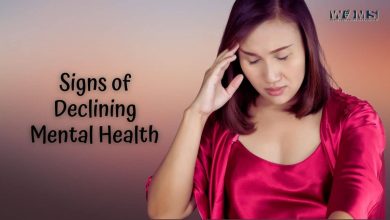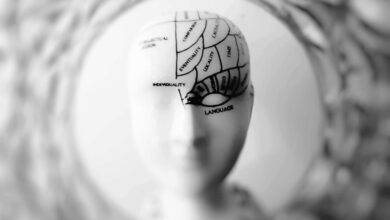How Does Social Media Affect Our Mental Health?

Now that we are in the glorious era of technology and social media, everything is on the internet. Everything is online. If you want to communicate with your friends, you can do it online via video call or social media apps like Viber, Facebook, and Messenger. If you wanna do some shopping, you can shop online. Even classes (that were once in the classroom set-up) are now online!
Everything is instant. Everything is within our reach. Since humans are social creatures, it is now easy to meet and mingle (virtually) with other people through social media. We need the companionship of others to thrive in life, and the strength of our connections has a huge impact on our mental health and happiness.
Being socially connected to others can ease stress, anxiety, and depression, boost self-worth, provide comfort and joy, prevent loneliness, and even add years to your life. However, there are some people who take bullying at a different level because it is very easy to hide your identity in social media.
With all these pros and cons of technology and social media, how do these affect our mental health?
Fear Of Missing Out (FOMO)
Being in social media makes you want to be updated to other people’s lives such as your friends, enemies, favourite actors, favourite movies, etc. Though being updated is good, too many updates can give you anxiety and develop what the Millenials call these days, FOMO, or Fear Of Missing Out.
Fear of Missing Out (FOMO) is “a pervasive apprehension that others might be having rewarding experiences from which one is absent” and is “characterized by the desire to stay continually connected with what others are doing”.
According to a 2013 study, FOMO is linked to higher levels of social media engagement and is associated with lower need satisfaction, mood and life satisfaction. This means that we are becoming aware of what we’re missing out and this makes us more dissatisfied in life.
For example, you are scrolling through social media and you saw that your friends in high school are having a mini-reunion without you. This can make you jealous and angry because you’re missing out on having a good time with your friends.
Being highly engaged in social media like Facebook and Instagram can intensify feelings that other people are living better lives than you are. The idea that you’re missing out on certain things can impact your self-esteem, trigger anxiety, and fuel even greater social media use that can lead to stress and burnout and even chronic illness such as heart disease.
Cyberbullying
One way of how social media affects our mental health is through cyberbullying. Anyone can be someone in social media and it is very easy to harass, humiliate, and threaten someone and get away with it.
Cyberbullying is harassing or humiliating someone through the use of digital technology. It doesn’t require face to face contact, physical power, or strength in numbers and it occurs anywhere 24/7.
About 10 per cent of teens report being bullied on social media and many other users are subjected to offensive comments. Social media platforms such as Twitter can be hotspots for spreading hurtful rumours, lies, and abuse that can leave lasting emotional scars.
Cyberbullying, like many other forms of bullying, can affect not our mental health but also our physical health. It is found out that people who are bullied are at a greater risk of developing mental health problems such as depression, low self-esteem, anxiety, or adult-onset PTSD. In severe cases, bullying can lead to suicide. It is because of the constant humiliation, anger, and fear that they feel suicidal and eventually, do it.
Isolation
Isn’t it ironic how social media should make us closer and connected with each other however it increases our feelings of loneliness?
In a study of the University of Pennsylvania on social media, using Facebook, Snapchat, Instagram, and similar social media apps to keep in touch with friends and forge off-line connections is okay to maintain good mental health and vitality in life. However, excessive use of social media as a substitute for a real connection can increase feelings of loneliness and inadequacy.
Depression and Anxiety
Excessive use of social media can trigger depression and anxiety, especially in teenagers. This is because of FOMO and the feeling that you want to be ahead of other people.
A 2018 study compared the mental health of 14- to 17-year-olds who used social media seven hours per day to that of teens who interacted with it for only about an hour a day. The frequent users were more than twice as likely to have been diagnosed with depression, been treated by a mental health professional, or taken medication for a psychological or behavioural issue during the 12 months preceding the study.
Also, based on the study of CNN regarding the social media use among 13-year-olds, researchers found that participants who checked Facebook or other networking sites between 50 and 100 times a day were 37 per cent more distressed than those who checked just a few times a day.
These studies suggest that the more you prioritize social media interaction over in-person relationships, the more you’re at risk for developing or exacerbating mood disorders such as anxiety and depression.
Final Thoughts
Social media and technology though have many negative effects on our mental health, still has some positive aspects. For example, using social media is good for communication and staying up to date with our families and close friends. It is also good for discovering something new and finding new friends. It can also be a powerful tool to raise awareness and promote good causes.
The key to maintaining good mental health while being in social media relies on the use of it. Researchers suggest that lessening the use of social media can decrease feelings of loneliness and anxiety, and suicidal thoughts. It can also decrease insomnia and can increase vitality and physical health.
Be responsible and use social media wisely. As the saying goes, “Too much of everything is bad.”
Read Also: Disadvantages of Video Games




